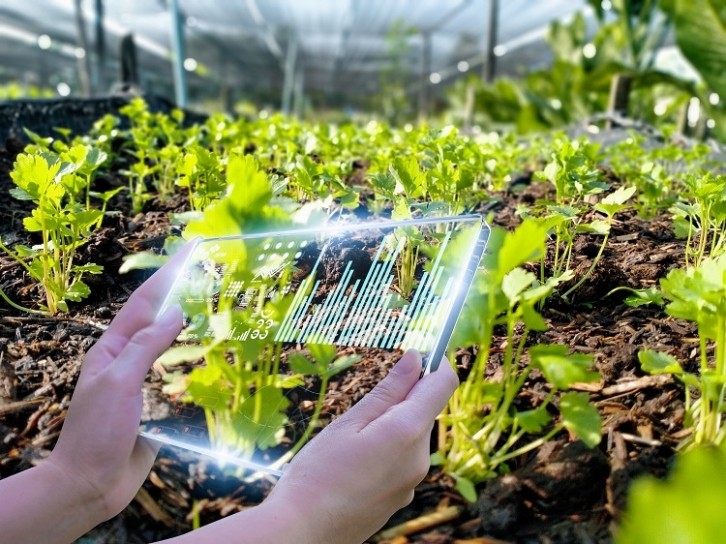EU sets the 'gold standard' for supply chain traceability

The European Union (EU) is the leading market in pursuing traceability in supply chains, recent research by Dr Sylvain Charlebois and Noor Latif from the AgriFood Analytics Lab at Dalhousie University highlighted.
In their 2023 study, which is currently awaiting review, the scientists explored the role of digital traceability in supply chain transparency and accountability. The study’s researchers conducted a comparative analysis of the legislative framework, mechanisms and support for traceability by policymakers and companies within Organisation for Economic Co-operation and Development (OECD) member countries.
Traceability is now largely regulated
The research followed a 2014 study by Dr Sylvain Charlebois comparing global food traceability regulations and requirements and assessing comprehensive food science and food safety reviews.
A decade later, Dr Sylvain Charlebois and Noor Latif from Agrifood Analytics at Dalhousie University found that traceability has entered into national legislation and become a leading strategy to bolster transparency and accountability within European food systems and across the agrifood value chain.
“The research into traceability in supply chains, particularly in the OECD’s agrifood sector, reveals that most OECD countries have established national digital traceability regulations,” Dr Sylvain Charlebois, Professor and Director at AgriFood Analytics Lab at Dalhousie University told FoodNavigator.
These regulations vary, with EU countries adhering to specific EU regulations such as 178/2002 for food and feed products, while non-EU countries follow different national practices. From analysing the role and prevalence of traceability in agrifood, the researchers also found the increasing use of blockchain technology to enhance transparency while noting varied implementation challenges across different countries.
Enhancing traceability in supply chains
The growth of advancing technology such as artificial intelligence (AI) and augmented reality (AR) can strengthen Europe’s opportunities to improve the transparency and accountability of its agrifood environment.
Today, the congruence of multiple factors in the agrifood sector has laid the path for traceability in supply chains. Influences prompting the need to trace our food relate to consumer demands, legislative mandates, technological developments and globalisation, Dr Charlebois said.
The main drivers behind enhancing traceability in supply chains include the growing consumer demand for transparency and safety in food products, government regulations mandating traceability for food safety and quality, advancements in technological solutions for traceability, and the increasing complexity and globalisation of food supply chains.
EU leads digital traceability
Legislative reform plays a vital role in ensuring the future of food supply chains. According to the research, the EU reflects the gold standard in supply chain traceability in food systems. With a comprehensive overall traceability framework, comprehensive regulations and continuous monitoring, the EU ranks at the top of the study’s list of OECD members leading the way for traceability in agrifood.
In the UK, the government has committed to producing an assessment of the UK’s food security at least once every three years. Set out in the Agriculture Act 2020, according to the Department for Environment, Food and Rural Affairs (Defra), it is a move that recognises the importance of food security.
The first UK Food Security Report was published in December 2021, Defra detailed. It explored the UK’s food supply sources overall, specifying that domestic production and diversity of supply are important to the UK’s food security.
Defra also noted that it established the UK Agricultural Market Monitoring Group to monitor all key agricultural commodities, including price, supply, trade and recent developments, so that it can plan ahead of any atypical market movements.
Obstacles holding digital traceability back
Despite its development, traceability in today’s food systems can still improve. Reasons to embrace, adopt and advocate for implementing digital traceability throughout supply chains are present. But so are the challenges in getting there and enhancing current traceability throughout the entire chain.
Diverse regulatory environments and standards across different countries are a core challenge affecting nations’ ability to enhance traceability throughout the agrifood supply chain. Technical challenges relating to implementing digital traceability systems, the costs associated with upgrading to these systems, and concerns over the reliability and security of digital traceability systems are also prevalent.
To overcome these obstacles, the agrifood industry needs to prioritise creating regulatory, technological and communication frameworks that enable and encourage collaboration, security and scalability. Stakeholders need to have trust and confidence in traceability systems, and digital developers need to inform leaders and consumers alike of their accurate, secure and credible capabilities.
To overcome these challenges and achieve traceability in supply chains, the industry needs to focus on harmonising regulations and standards across countries, Dr Charlebois said. It must also invest in technology and infrastructure to support advanced traceability systems.
The agrifood sector needs to foster collaborative efforts between governments, industry players, and technology providers to develop scalable and cost-effective solutions, Dr Charlebois continued.
Educating stakeholders about the advantages and usage of these systems and prioritising data security and privacy to build trust in digital traceability systems are also crucial to encouraging the development and uptake of enhanced traceability throughout agrifood supply chains.







